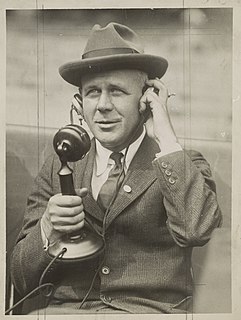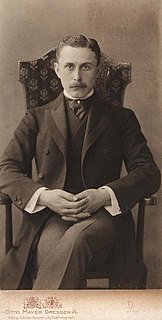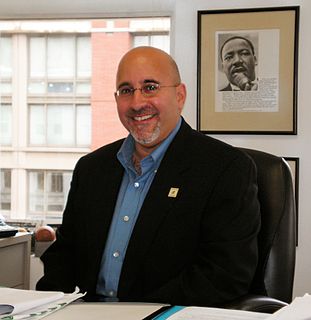A Quote by Alexander Hamilton
The Courts must declare the sense of the law; and if they should be disposed to exercise will instead of judgement; the consequences would be the substitution of their pleasure for that of the legislative body.
Related Quotes
The whole body of the nation is the sovereign legislative, judiciary, and executive power for itself. The inconvenience of meeting to exercise these powers in person, and their inaptitude to exercise them, induce them to appoint special organs to declare their legislative will, to judge and to execute it. It is the will of the nation which makes the law obligatory.
The complete independence of the courts of justice is peculiarly essential in a limited Constitution. By a limited Constitution, I understand one which contains certain specified exceptions to the legislative authority. Limitations of this kind can be preserved in practice no other way than through the medium of courts of justice, whose duty it must be to declare all acts contrary to the manifest tenor of the Constitution void. Without this, all the reservations of particular rights or privileges would amount to nothing.
No exercise brings into play all the muscles of the body in a more thorough manner, and none is more interesting than wrestling. He will find no other exercise more valuable in the cultivation of faculties which will help him to success in agility, strength, determination, coolness, and quick exercise of judgement.
The interpretation of the laws is the proper and peculiar province of the courts. A constitution is, in fact, and must be regarded by the judges, as fundamental law. It therefore belongs to them to ascertain its meaning, as well as the meaning of any particular act proceeding from the legislative body. If there should happen to be an irreconcilable variance between the two, that which has the superior obligation and validity ought, of course, to be preferred; or, in other words, the Constitution ought to be preferred to the statute, the intention of the people to the intention of their agents.
Courts are the mere instruments of the law, and can will nothing. When they are said to exercise a discretion, it is a mere legal discretion, a discretion to be exercised in discerning the course prescribed by law; and, when that is discerned, it is the duty of the Court to follow it. Judicial power is never exericised for the purpose of giving effect to the will of the Judge; always for the purpose of giving effect to the will of the Legislature; or, in other words, to the will of the law.
... we grapple with this 'law of sin' (Rom. 8:2) and expel it from our body, establishing in its place the surveillance of the intellect. Through this surveillance we prescribe what is fitting for every faculty of the soul and every member of the body. For the senses we prescribe what they should take into account and to what extent they should do so, and this exercise of the spiritual law is called self-control.
I would not that death should take me asleep. I would not have him merely seize me, and only declare me to be dead, but win me, and overcome me. When I must shipwreck, I would do it in a sea, where mine impotency might have some excuse; not in a sullen weedy lake, where I could not have so much as exercise for my swimming.
Courts should always do the right thing. But if winning were as simple as making a good argument and filing a good brief, then we would have won the freedom to marry 40 years ago. We must put the legal work next to the public education work next to the legislative work next to the organizing work, and that's what's brought us so far.
If, then, the courts of justice are to be considered as the bulwarks of a limited Constitution against legislative encroachments, this consideration will afford a strong argument for the permanent tenure of judicial offices, since nothing will contribute so much as this to that independent spirit in the judges which must be essential to the faithful performance of so arduous a duty.
But I must explain to you how all this mistaken idea of denouncing pleasure and praising pain was born and I will give you a complete account of the system, and expound the actual teachings of the great explorer of the truth, the master-builder of human happiness. No one rejects, dislikes, or avoids pleasure itself, because it is pleasure, but because those who do not know how to pursue pleasure rationally encounter consequences that are extremely painful.































